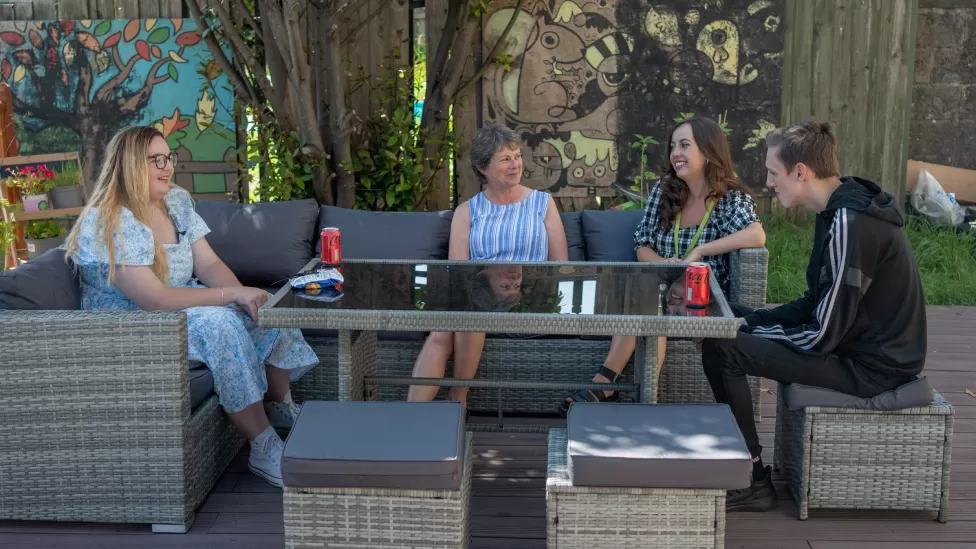Every year in Wales about 500 young people fall out of the formal care system on reaching the age of 18. It means from that moment they are treated as adults, so no longer necessarily receive the support they had each day as children.
Many feel ill-prepared for adult life and find the prospect of supporting themselves overnight as "scary".
However, a children's charity has been offering those young people life-skills lessons to ease the transition.
The skills covered include cooking, gardening and employability workshops while care leavers also hope to be paired with mentors to help them navigate adult life between the ages of 18 and 25. The privately-funded scheme, called Bloom, is run by Barnardo's Cymru and also aims to offer a social network, which may said can be hard to find when transitioning to adulthood.
"You know it's coming but it's really daunting," said Caitlyn, 23, who left care when she turned 18 having lived with foster families for several years.
"You've gone from having people constantly around and asking you if you're OK, and then you're suddenly being pushed out into the real world. There is this aspect of now you are officially an adult." However she is not alone in her experience.
Darren also left care at 18. He began life on his own two feet right at the height of the Covid-19 pandemic - something which made an already difficult time even harder.
He said: "All of a sudden you have to learn all these things that adults do and you haven't been told how to do them.
"You've got this massive responsibility on your back to pay the bills, find a job and you don't know how to do that. You were never told how to do that."
In order to help bridge that gap, the Welsh government has already announced plans to trial the rollout of a universal income for about 500 care leavers. The payment, about £19,000 a year, is aimed at helping people like Caitlyn and Darren to have a means to get themselves going with the costs of living.
And while that was welcomed by Barnardo's, its director in Wales, Sarah Crawley, said there were still gaps that needed filling by programmes like Bloom.
She said: "There's support for transitioning into independence, there's support for college and education but there isn't necessarily support for activities or relationship building or gaining that network.
“We see a lot of young people with heightened anxiety, depression, stress levels, feeling very lonely in their accommodations, being very frightened sometimes in accommodation which isn't necessarily suitable. Just because you are care experienced doesn't mean you have any less experience than any other young person."
